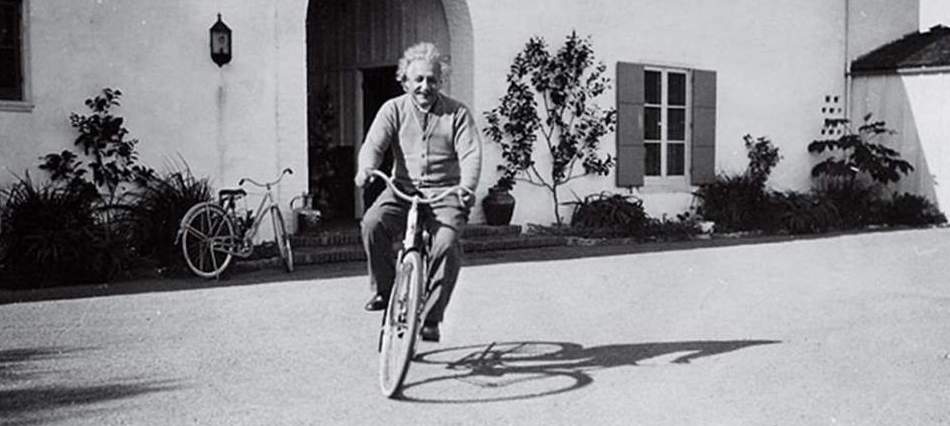KNOWLEDGE AND THE KNOWER—
WHAT COUNTS AS KNOWLEDGE?
KNOWING THAT AND KNOWING HOW
This first written assignment requires students, in the first weeks of TOK, to grapple with distinctions between propositional knowledge and various kinds of direct experience. Students are on their own with this in-class written assignment. No previous formal class time has been devoted to introducing these ideas. The assignment represents a very gentle first encounter with TOK writing expectations.
Selected sentences from provocative or intriguing student responses can be published as stimulus material for short discussion next time the class meets. This echoes the teaching strategy introduced in the Student Knowledge Claims session.
Albert Einstein riding a bicycle in 1933 at the home of a CalTech trustee.
TOK WRITING ASSIGNMENT
Explain your thinking carefully, especially if any contradictions emerge.
1. Imagine that you have sole responsibility to teach a coordinated five-year-old to ride a bicycle for the first time, without training wheels, in a twenty-minute window of time. Briefly, what would you say? What would you do?
2. Explain whether or not the following advice, based on theoretical physics, would help you in your attempt to teach the child to balance on the bicycle? "For a given angle of unbalance, the curvature of each winding is inversely proportional to the square of the speed."
3. To what extent does a male obstetrician, who is respected for his many academic publications, know more about childbirth than a teenage mother who has just given birth to twins without pain-relieving drugs?
4. In a single sentence try to summarize what we can say about the difference between knowledge by direct experience (knowing how) and theoretical, propositional knowledge (knowing that). Base this on some or all of what you have just written.
